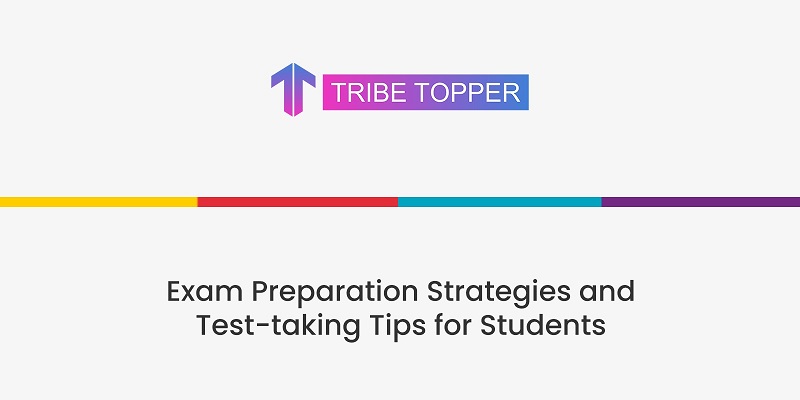Exam Preparation Strategies and Test-taking Tips for Students

Navigating the academic landscape requires more than just rote learning; it requires strategic preparation and adept test-taking skills. Exams are often viewed as daunting hurdles, especially when you have assignment pendency. The best opportunity to showcase an understanding of analytical abilities and knowledge application. The path to ace them isn’t strewn with endless notes and sleepless nights spent practicing IBDP Mock Tests or test papers.
Success lies in a balanced, well-thought-out approach that blends diligent study techniques with effective exam strategies. This comprehensive guide is designed to shed light on the art of effective exam preparation and the nuances of test-taking, ensuring students face exams confidently and perform excellently.
Exam Preparation Strategies:
Planning and Organization – Create a study timetable, allocating time slots for each subject based on difficulty and comfort level. Divide chapters into smaller sections and set specific goals to cover them properly.
Effective Study Techniques – Instead of simply reading, test yourself frequently. The reinforces your memory and enhances retention. Despite cramming, space out your study sessions. Revisit topics at different intervals to improve memory recall. Visual aids like charts, diagrams, and mind maps can help you organize information and establish connections between concepts.
Environment Matters – Designate a quiet, well-lit, and comfortable study area to minimize distractions. Limit the use of smartphones or social media during study time. Consider apps that block distractions, if necessary, especially Instagram or Facebook.
Holistic Approach – Balanced nutrition, regular physical activity, and adequate sleep can significantly boost cognitive functions. Engage in relaxation techniques like deep breathing exercises, meditation, or short walks.
Test-Taking Tips for Students:
Before the exam – Glance over the notes the day before, but avoid intense studying. Cramming might lead to confusion in the mind. The night before, prepare all required materials (pens, pencils, ID, calculator) to avoid last-minute hassles. A good night’s sleep is important, which leads your brain to function better when well-rested.
During the exam – Always read instructions thoroughly. Understand the question before attempting the answer. Allocate your time for each section or question. If you’re stuck on a particular question, move on and return to it later. For essay-type questions, always structure your answer. Start with an introduction, followed by the main content, and conclude effectively. If time allows, review your answer. Sometimes, you might catch small errors or remember additional points to include.
After the exam – Post exam, reflect on your performance. Instead of dwelling on what you didn’t know, focus on areas to improve for the next time. If you have exams in quick succession, ensure you take short breaks to relax and recharge.
Adopting a Growth Mindset:
Beyond preparations and techniques, your mindset plays an important role in exam success. Dr. Carol Dweck, in her research, emphasizes the difference between a fixed and a growth mindset. Students with growth mindset believes abilities can be developed through dedication and effort, making them resilient in facing challenges like tough exams.
- Embrace Challenges – Instead of avoiding tough topics, embrace them. Difficult areas often become easier the more you engage with them.
- Learn from Mistakes – Mistakes aren’t setbacks but opportunities to learn. If you stumble on a specific topic or question, immerse yourself in it to understand it better.
Group Study and Discussion:
While individual study is important, there’s undeniable value in group study sessions. Your peers might offer a fresh perspective or a simpler explanation for complex topics. Explaining a concept to a friend can help cement your understanding of the topic.
Leveraging Technology:
The digital age offers various tools to aid your exam preparations like educational apps, practice tests, and online forums. Online platforms often provide IBDP Test Papers, helping you gauge your preparation level and familiarizing you with the exam format. Some education websites have dedicated forums where students can discuss academic queries. Getting your doubts cleared and participating in other’s discussions can be enlightening.
Conclusion –
Success in exams isn’t just about studying harder but studying smarter. The right balance of effective preparation strategies and test-taking techniques can make a world of difference. Remember, exams are just a part of the learning journey. The skills you develop in organization, time management, and critical thinking will benefit you far beyond the classroom. Embrace the challenge, prepare strategically, and approach exams with confidence. Remember that every challenge, including exams, offers an opportunity for growth.